Reflections on CMS Kickoff 25 from ‘The AEM Guy’
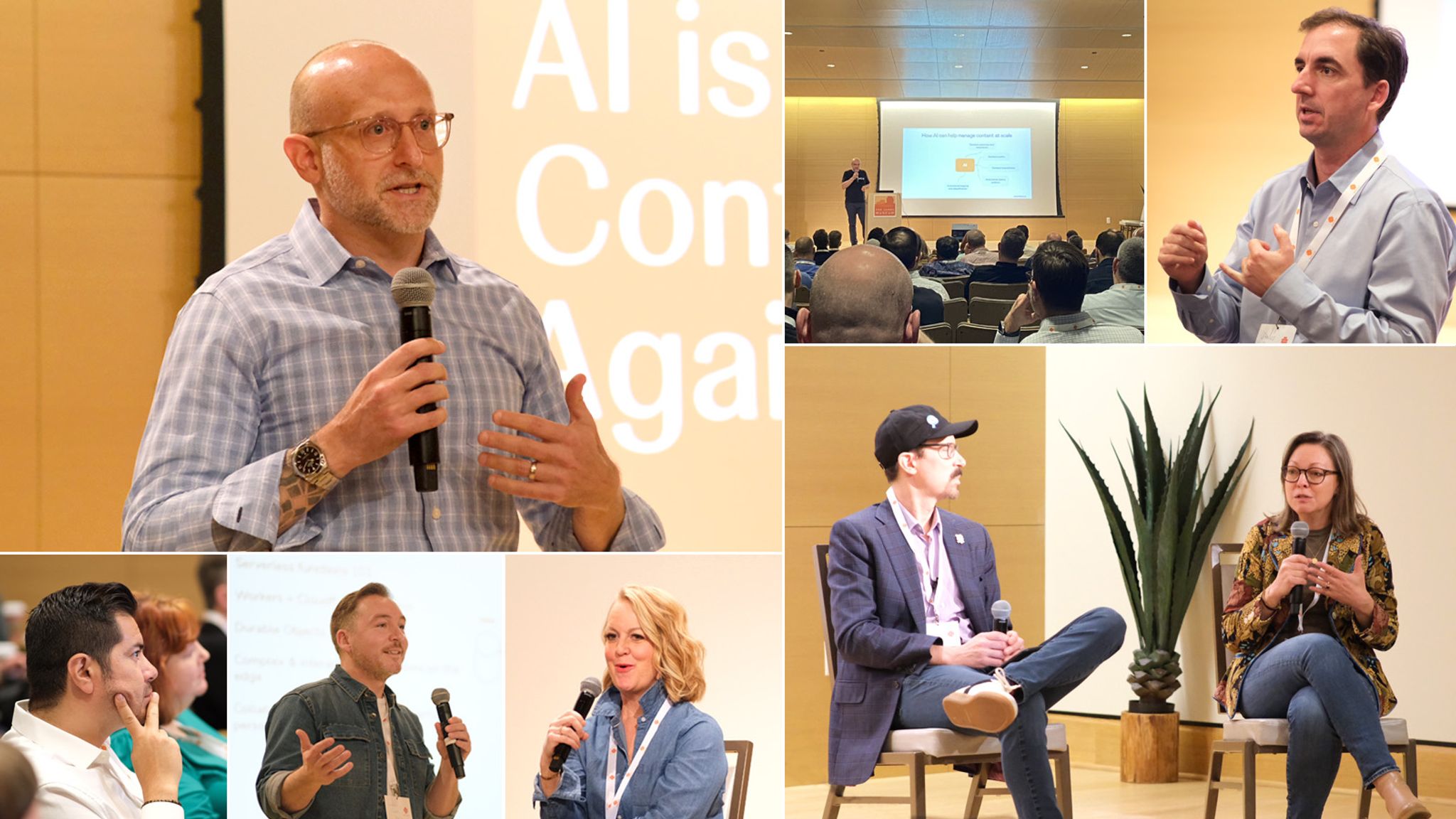
This year’s kickoff clearly signaled how our industry is maturing in its approach to AI—moving beyond the hype to practical, thoughtful implementation. Here are my thoughts on a few of the key sessions and my general takeaways from the event.
Tom Cranstoun, “The AEM Guy,” is the principal consultant at Digital Domain Technologies Limited and a CMS Critic contributor.
As I reflect on the CMS Kickoff 25 Conference—held at the James Museum in downtown St. Petersburg, Florida on January 14th and 15th—I'm struck by the exceptional quality of insights shared by every speaker.
Organized by Janus Boye, this is the third annual installment of the event. While it covered broad territory in content management, my lens was focused primarily on the intersection of AI, CMS, and the web—a natural extension of my work since last year's conference. Though the agenda was diverse, AI emerged as a central theme that colored many of the discussions.
What follows isn't a comprehensive conference report, but rather my personal takeaways from key sessions that will shape my approach to CMS in the coming year. That said, I'm deeply grateful to all the speakers, demonstrators, and attendees for two days of inspiring dialogue and discovery.
Kicking off Day One
The conference opened with Matt Garrepy—Chief Digital Officer at Solodev and Chief Critic at CMS Critic—setting the stage with some data. He shared a GitHub graph that revealed two significant trends: a 15% decline in traditional programming jobs alongside Python's rising dominance as a programming language.
But what really caught my attention was the explosive growth in contributions to Ollama, an open-source LLM platform. This surge in development signals a fundamental shift in how organizations are approaching AI.
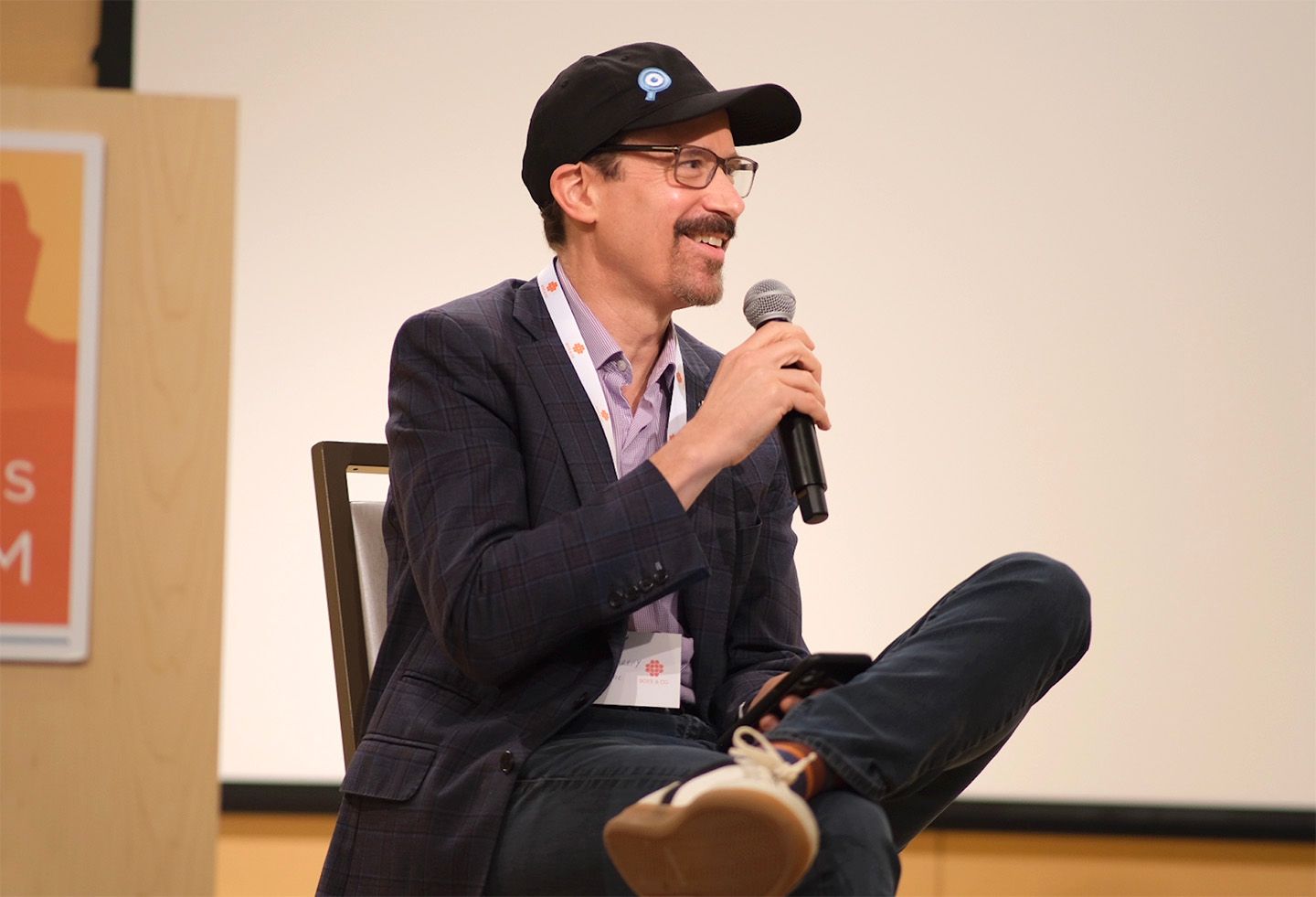
Source: Marta Cukierman
The ability to run large language models locally, maintaining control over data and privacy, is becoming increasingly critical for enterprises. This intersection of accessible AI tools and content management is reshaping our industry's landscape.
At CMS Kickoff 2024, I ruminated on the fad for AI-generated content, arguing instead that AI's true power lay in content consumption. My message, “How will AI interpret your site?” highlighted the urgent need for proper schema markup and content structure that serves both human and machine readers.
Yet one year later, this critical adaptation remains largely unaddressed. Most sites still present content optimized solely for human consumption, lacking the semantic structure and clear data relationships that AI needs to effectively process information. The industry's continued focus on AI content creation while neglecting AI content consumption suggests we're still missing a crucial opportunity to evolve our content architecture for the AI age.
Tracking AI’s continued evolution
I was pleased to see AI's evolution at this year's CMS Kickoff, where it emerged as a collaborative partner in content creation rather than a replacement for human writers. This shift was perfectly illustrated by CMS Idol winner Vojtech Boril of Kontent.ai, who demonstrated an AI reviewer can automatically analyze content for legal compliance, gender sensitivity, tone, and guarantee claims.
The system was developed in response to a pharmaceutical company's challenging approval workflow, where each web page had to be printed to PDF for legal review, triggering weeks of back-and-forth iterations before content could be published. By integrating AI review into the content creation process, they transformed a cumbersome print-and-wait approval cycle into a streamlined, proactive guidance system
The AI assistant streamlines this process by applying preset rules like “Never Guarantee 100% results,” “Use customer instead of patient,” and avoiding gendered terms. When flagging issues, it suggests changes while allowing content authors to add contextual comments for legal review, such as “requesting exception for male-specific product.”
While this AI-assisted workflow promises faster turnaround times, some practical realities remain. Legal departments still require PDF records for their provenance systems, and bringing legal teams directly into the CMS requires additional licenses, training, and costs. The system's effectiveness also depends heavily on how rules are written. For instance, a rule stating “Never Guarantee 100%” might miss problematic claims like “110% sure” or “99.9% certain” to cure headaches.
Much like spell-checkers don't actually teach spelling, these AI reviewers act as meaning checkers—useful tools, but not replacements for human legal oversight. While this CMS Idol demo was impressive, alongside many other remarkable features shown during the conference, it highlighted both the promise and current limitations of AI in content management.
The future lies in this direction, but the journey there requires careful navigation of both technical and organizational challenges.
The race to usability
Nicole France, Evangelist and Director of Content at Contentful, was the first speaker of the day. She discussed "the race to usability" in an interview with Matt Garrepy.
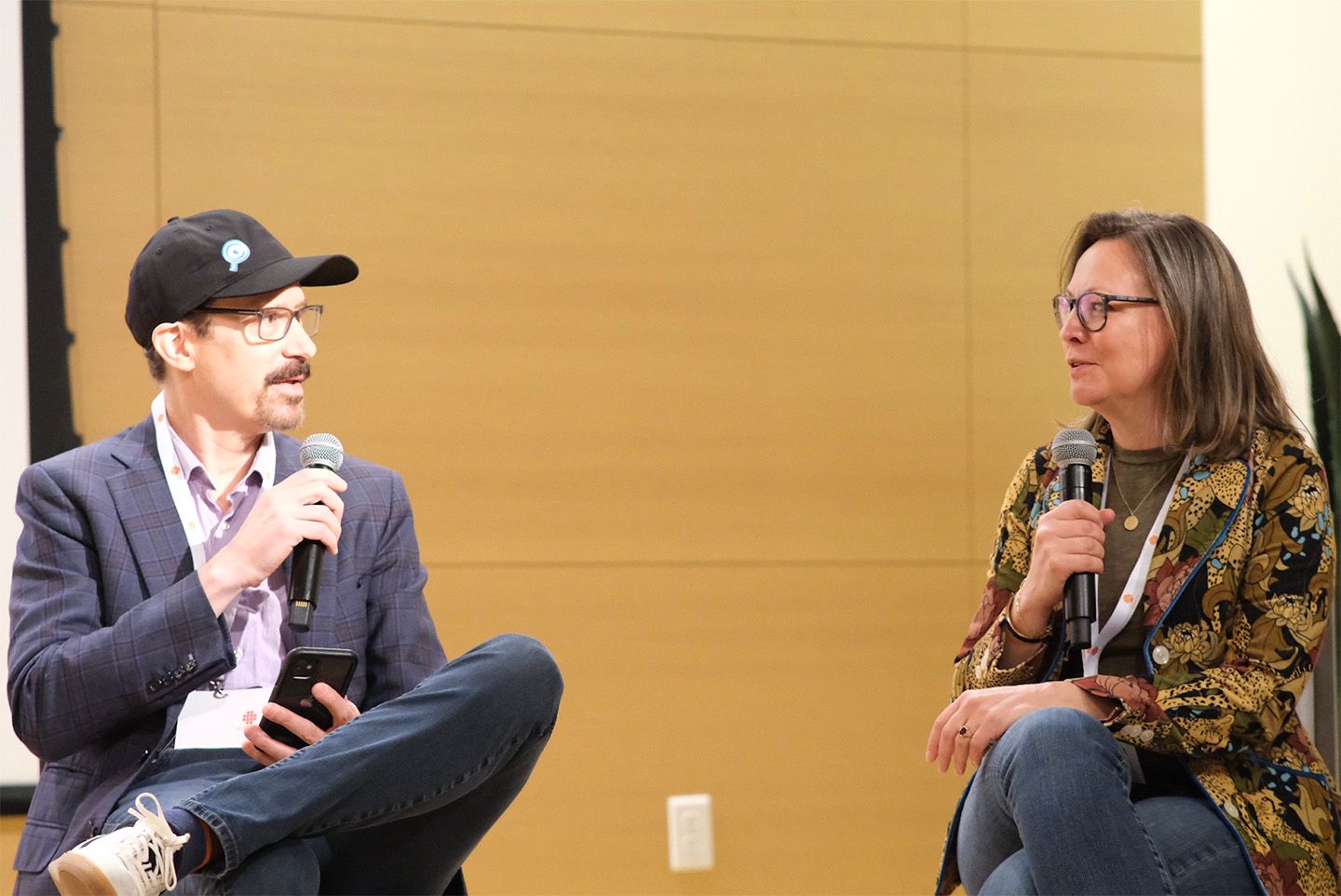
Source: Marta Cukierman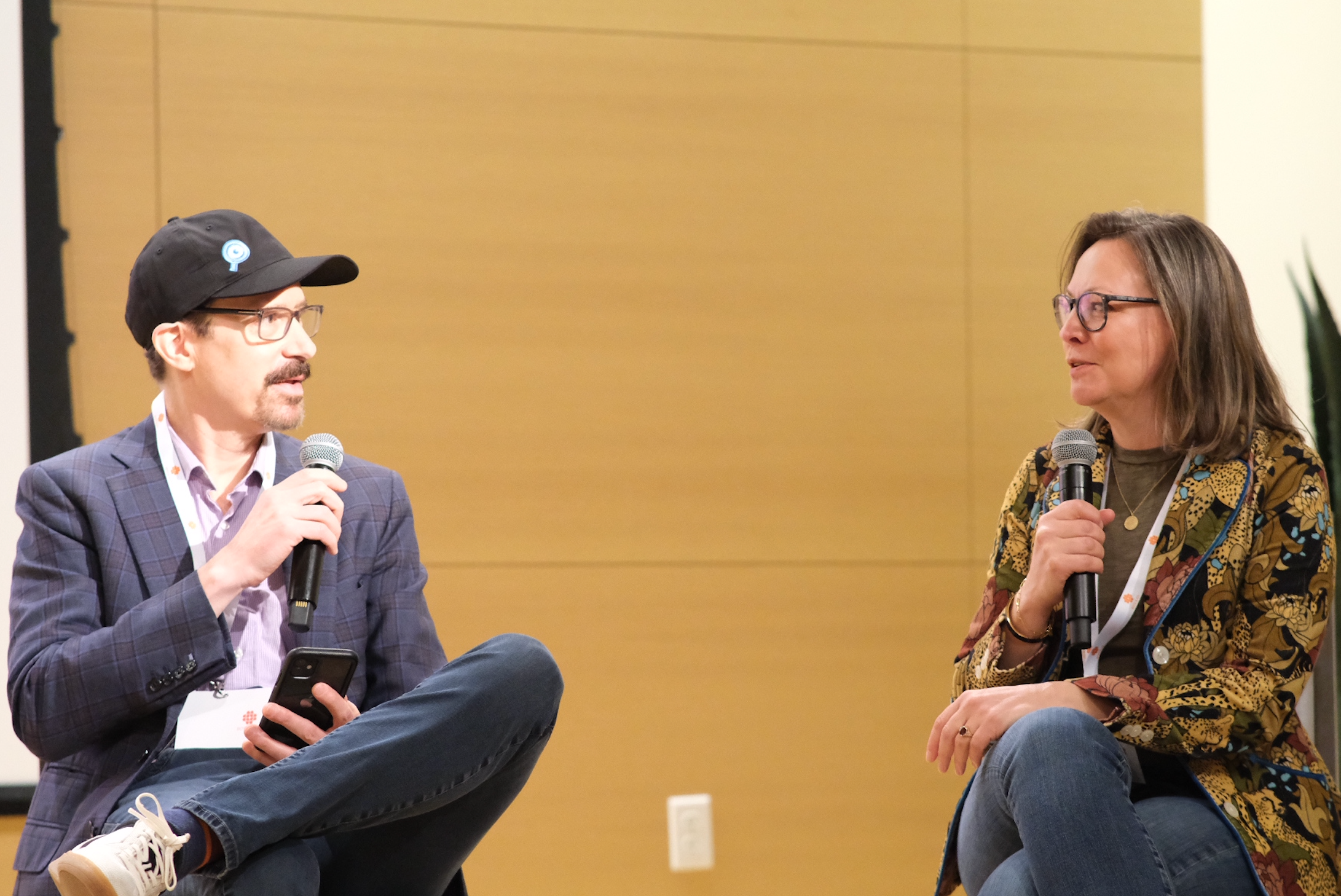
In summary, Nicole stated that we talk about tech architecture using words like Headless, Composable, and Monolithic. She asked, Does it matter? Does the customer care about the terms we all use—DXP, CMS, and so on?
No. As she stated, what the customer craves is flexibility and adaptability. And as an industry, we are still trying to figure these things out. Most importantly, the content creators themselves do not create in the CMS. We have a content supply chain where the creators use media and text from various sources and assemble the desired message using other tools like Acrobat and Word. Then, they pass an approved message with copy, media, and titles to CMS authors who use the CMS to publish the content.
As Nicole said, CMS is part of the complexity of the entire process, and we need to abstract that complexity. Gen AI helps in this process, but it cannot lead. Content is everything, and nothing; understanding this is critical.
Implementing GenAI in a complex content ecosystem
While Nicole highlighted the disconnect between content creation and CMS systems, Michael Spenceley examined how this gap affects AI implementation. His session on AI and content quality was about the relationship between AI success and content governance. The big takeaway: you can't successfully implement AI without first understanding your content ecosystem.
Michael’s message was clear: Generative AI's effectiveness depends entirely on having access to accurate, well-structured, high-quality content. Drawing from his experience at Johnson & Johnson, Michael highlighted common pitfalls in AI implementation. Too often, he noted, organizations take a tech-first approach, leaving business experts and content specialists out of the conversation.
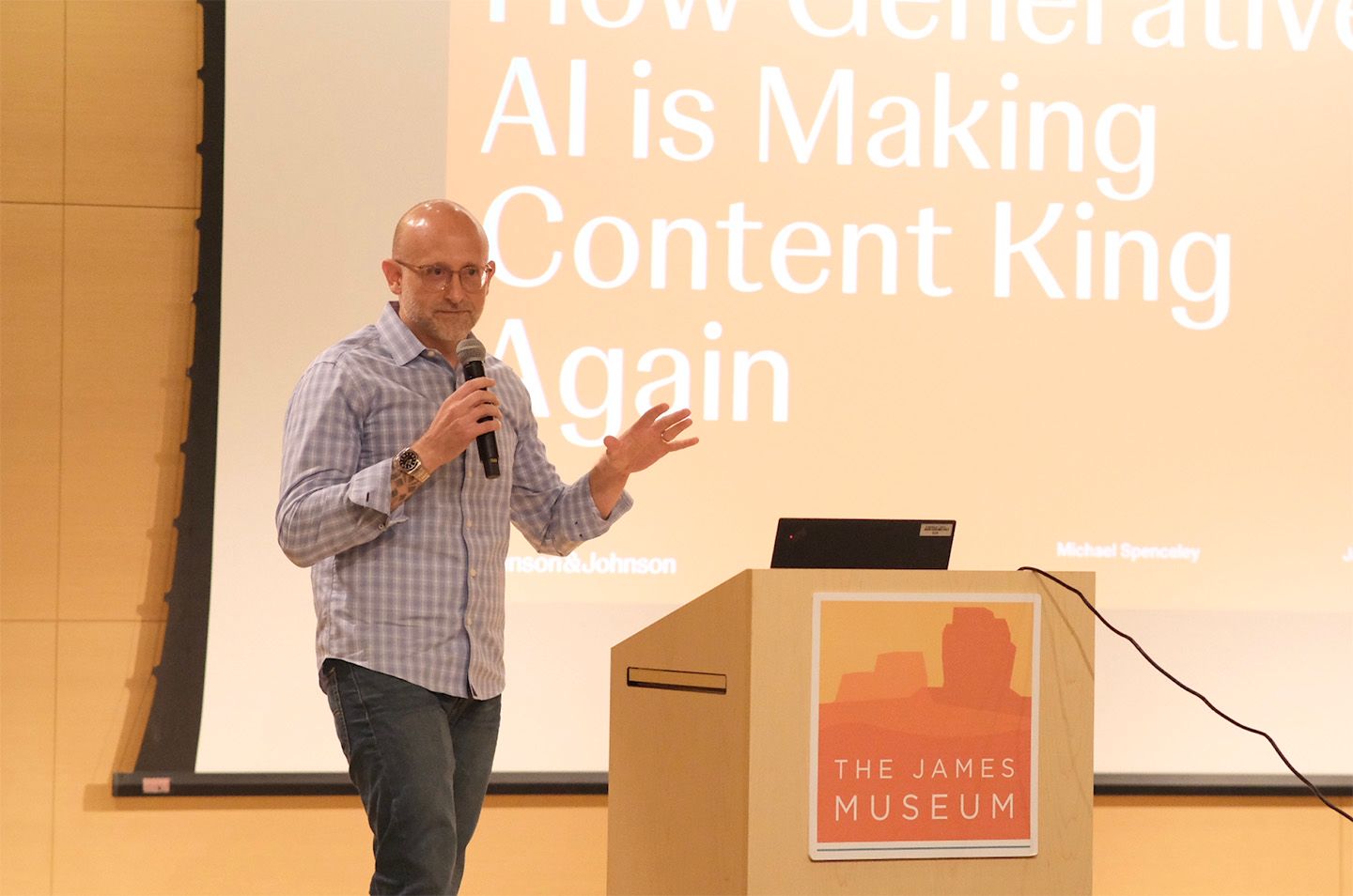
Source: Marta Cukierman
The results are predictable: AI systems trained on outdated content from questionable sources, new processes that conflict with existing workflows, and accuracy levels that fall short of expectations. Michael shared three practical principles that guided his team's success.
First, he emphasized the importance of maintaining momentum, even in imperfect conditions. His team embraced manual processes initially, using them as learning opportunities to understand what would be needed for future scalability. Rather than reinventing the wheel, they leveraged existing governance processes while building for the future.
The second principle focused on stakeholder involvement. Michael's content team took an active role in analyzing content, engaging with content owners, and ensuring only vetted content made it into their systems. Regular communication with technology partners and clear role definition proved crucial for success.
Perhaps most importantly, Michael's third principle addressed the perpetual challenge of resource allocation. His team successfully identified leaders who understood the direct connection between content quality and AI success. This executive buy-in enabled them to implement more rigorous governance and hold content owners accountable.
What made Michael's presentation particularly valuable was its grounding in real-world experience. While many organizations are rushing to implement AI solutions, his approach emphasized the fundamental importance of content quality and governance in making these initiatives successful.
The rise of AI-assisted migration
Nick Rudd, Director of Strategy and Consulting at MMT Digital, tackled one of the most challenging aspects of content management: migration.
While CMS platforms excel at routine tasks like page assembly and cache management, content migration has remained a complex challenge that traditional ETL tools haven't fully solved. Nick presented a compelling case for AI-assisted content migration, outlining a comprehensive multi-step process that goes far beyond simple copy-and-paste operations.
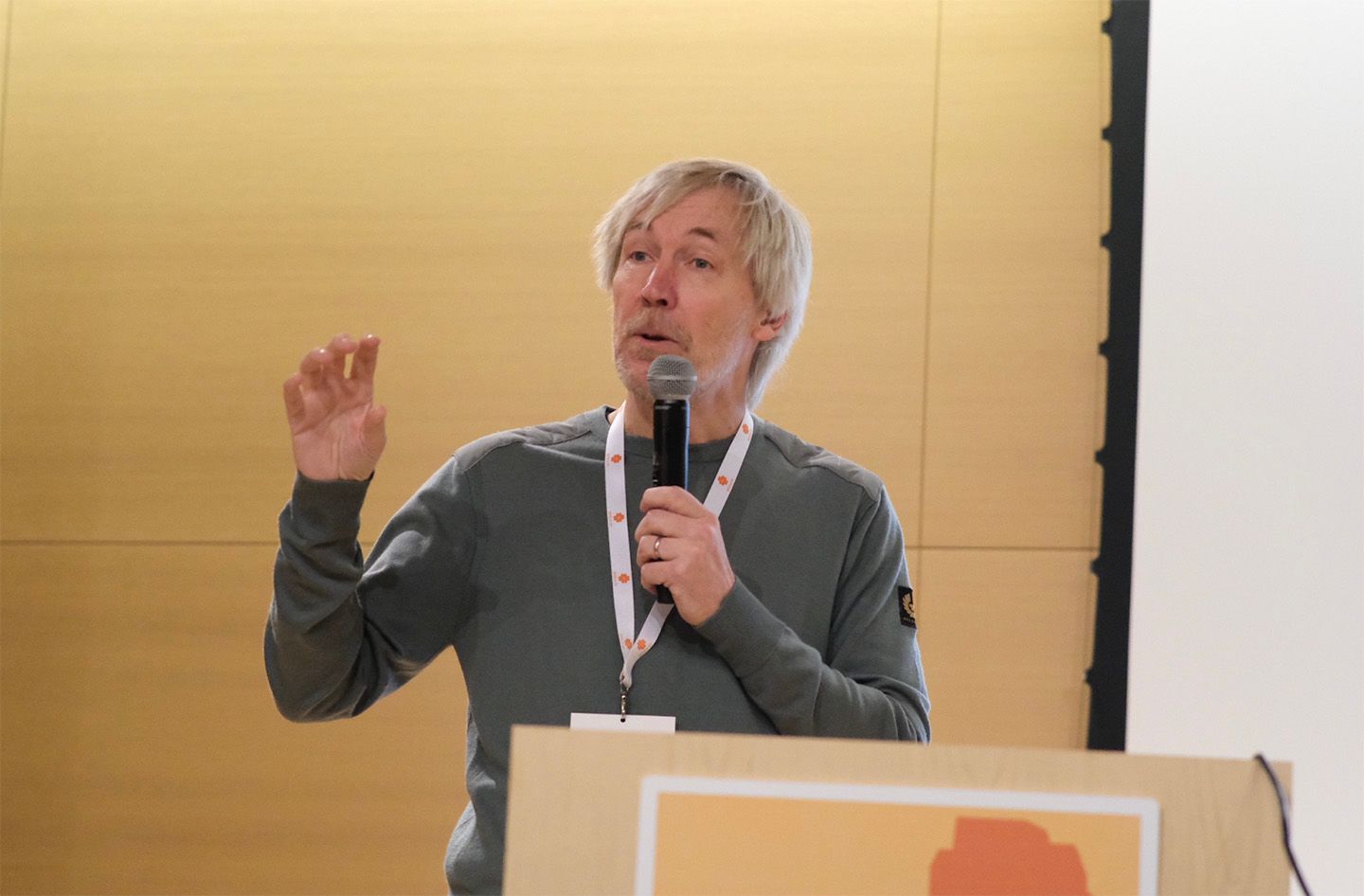
Source: Marta Cukierman
Nick’s approach emphasizes the importance of content validation and rule-setting before any migration begins. He gave a thorough presentation on the content management process, from initial assessment to advanced recommendations. The slides are available in the conference agenda.
Nick introduced the Nimbus prototype, an end-to-end pipeline that leverages AI for content migration. The system follows a logical workflow: fetching content as an end user would see it, analyzing it with AI, preparing it for the new platform, checking compliance, delivering it to various endpoints, and maintaining a detailed audit trail.
The proposed content migration system benefits both agencies and clients by making it easier to switch platforms while retaining clients, content, and SEO value. It also ensures cost-effectiveness, accuracy, and scalability while addressing the main challenges of content migration.
‘Intuiting’ hyper-personalization
Makram Mansour, Group Product Manager - Customer Experience Management at Intuit, advanced the AI/CMS discussion with his insights on “Leveraging AI for Hyper-Personalization.”
He opened memorably with a Jeff Bezos quote from 2000: “Personalization is when you go into a bar and sit down, and the bartender puts a whiskey in front of you without having to ask what you want.”
From this starting point, Makram outlined how AI is transforming personalization at scale. Gone are the days of building MVP experiences with developers. Instead, companies like Intuit are embracing rapid experimentation with AI.
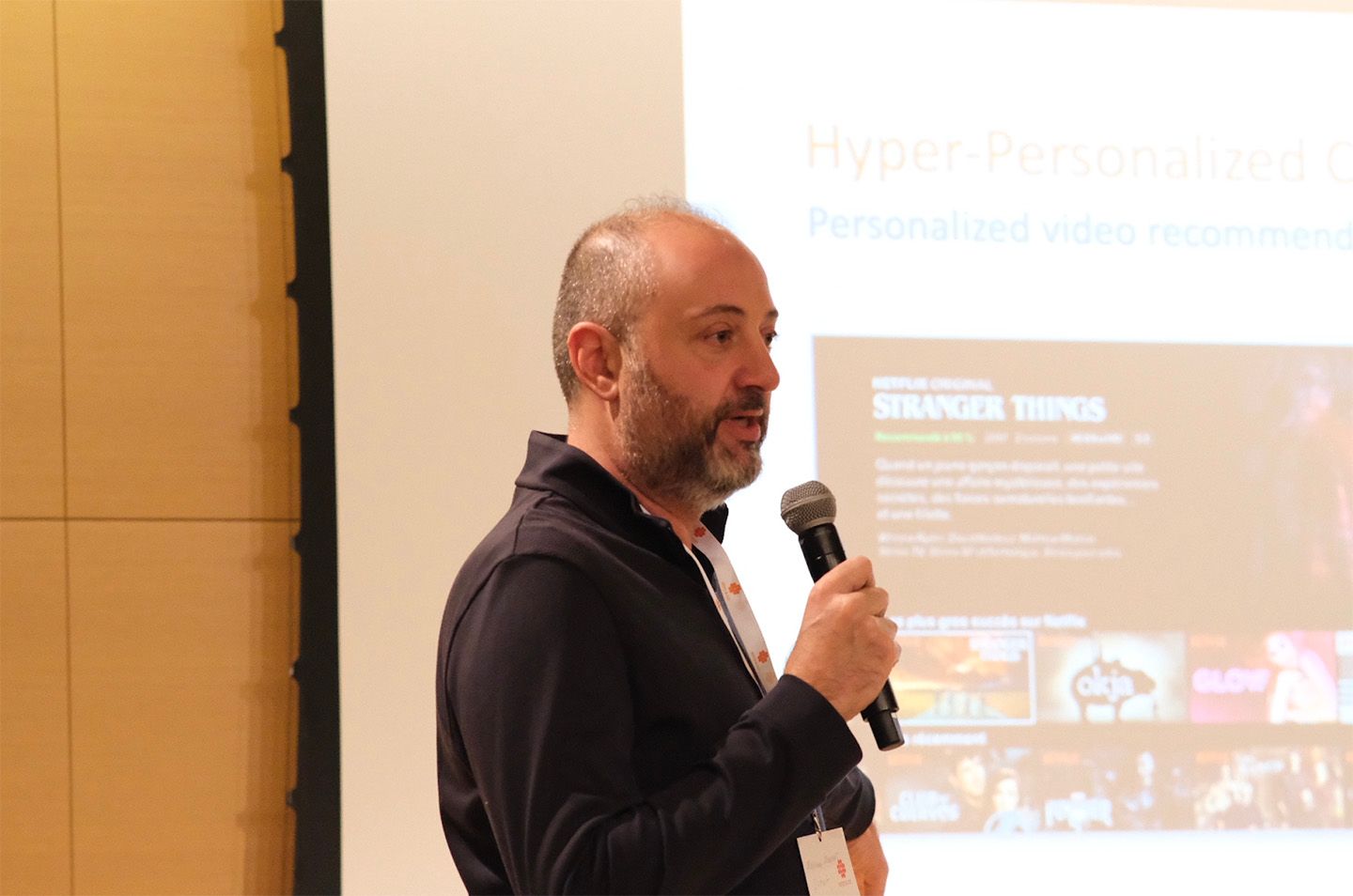
Source: Marta Cukierman
Makram emphasized a business reality: companies invest heavily in driving traffic to their sites through traditional marketing, Google Ads, and TV spots. Therefore, websites must not only work flawlessly but deliver relevant, converting experiences.
Intuit's approach uses AI to generate variations of content fragments, moving beyond macro-audience experiences toward truly individualized interactions. Their evolution has been from basic website search and support chatbots to a sophisticated Concierge AI Assistant.
Makram was candid about the challenges: proper QA/UAT for hyper-personalized experiences is essential but expensive. Yet, as he emphasized, the power of truly personalized customer experiences justifies the investment in validation and testing.
Verifying truth in the age of AI
Joel Varty, CTO at Agility CMS, gave a compelling talk on “Verifying Truth in the Age of AI.” On his opening slide was an old Russian proverb, Trust but Verify—which actually rhymes in Russian (doveryay, no proveryay).
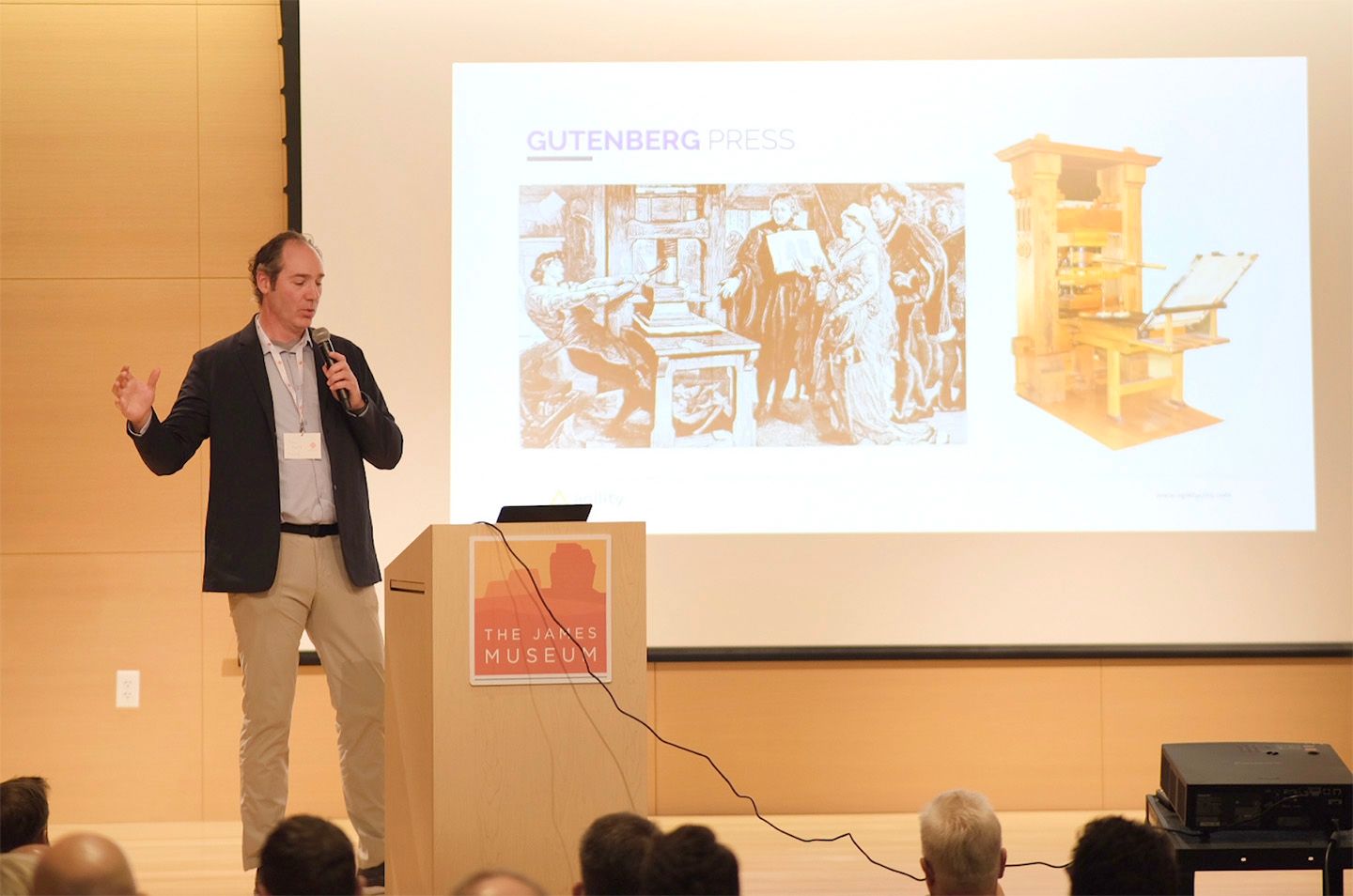
Source: Marta Cukierman
Joel tackled a critical issue in his session: trust in this new era of AI. His presentation examined how our relationship with truth has evolved from printed media through digital platforms and now into the era of AI-generated content.
The core challenge, Joel argued, lies in our tendency to trust too readily. When content appears at the top of a Google search, many accept it without question. We should also approach social media with skepticism, AI-generated content presents an even more complex challenge. Joel illustrated this by breaking down ChatGPT's training data, noting that while books constitute 16% of its training material, many are fiction works with questionable factual content (see the table below).
| Chat GPT Dataset Source | Percentage |
|---|---|
| Common Crawl | 60% |
| WebText2 | 22% |
| Books1 | 8% |
| Books2 | 8% |
| Wikipedia | 3% |
What makes AI particularly concerning is its confident delivery of information, regardless of accuracy. Joel demonstrated this with a striking example of AI hallucination—a possibly fabricated claim about a pre-Trump president pardoning family members. Such confident misstatements underscore a crucial point: AI's articulate and authoritative tone can mask inaccuracies.
For content management system vendors and professionals, this raises pressing questions about responsibility and verification. In a composable internet landscape, how do we ensure truth prevails? How can we better surface and verify first-source information? Joel's message was clear: as AI becomes more prevalent in content creation, our role in verifying and validating information becomes more critical than ever.
‘The Wild West’ of WordPress
Karim Marucchi, CEO at Crowd Favorite and Co-founder of the Scale Consortium, continued the trust discussion—which is front and center with the recent WordPress developments.
I will avoid the bulk of the ongoing controversies, which we’re all aware of. Instead, I will note that he highlighted a supply chain incident that cut to the heart of digital trust: The creator of WordPress—Matt Mullenweg and his company, Automattic—took over a critical plugin slug from WordPress hosting competitor WP Engine, effectively redirecting users to their own fork of a popular WordPress plugin (ACF).
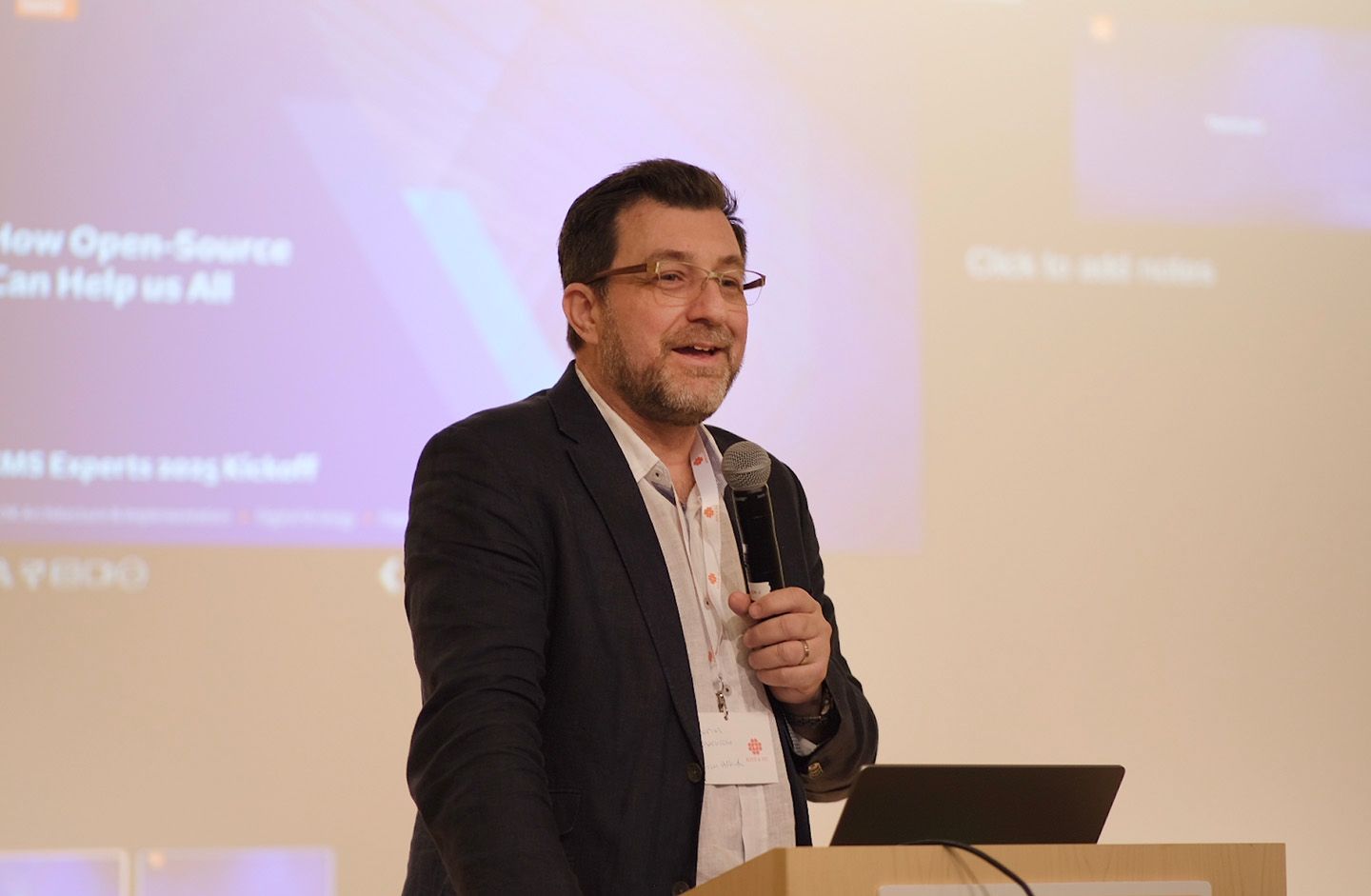
Source: Marta Cukierman
This seemingly technical issue reveals a broader concern about trust in digital ecosystems. Previously, WordPress's plugin repository served as a trusted system for millions of users, whether they were running self-hosted installations or managed services. Now, organizations face a new challenge to verify every plugin and update, in any open source ecosystem with a single point of truth—a challenge that extends beyond simple security concerns to questions of authenticity and provenance.
The incident Karim described reinforced Joel Varty's earlier points about trust verification. In an age where AI can copy, morph, and generate content at an unprecedented scale, even something as fundamental as a plugin slug lacks a reliable verification mechanism. This creates a ripple effect across the entire content management ecosystem, forcing businesses to rethink how they verify and trust digital assets.
Karim and the open source community would like to see a federated approach that can be used to ensure that one person cannot make a decision that will affect the entire ecosystem. This includes extending federated and isolated directories that are commonly used in software to text fragments such as slugs and URLs. In theory, this will help to preserve the authenticity and thus the verification by decentralizing risk.
AI and content governance at scale
In his session, Petr Palas—the founder of both Kentico and Kontent.ai—explored how content management systems are rarely used to manage content. Though they have sophisticated CMS platforms, they're used mainly as content-entry tools rather than true management systems. Real content management happens through a patchwork of email, Excel, and Word documents, which Petr thinks is not scalable or efficient.

Source: Marta Cukierman
He illustrated how customer-facing content spans websites, blogs, microsites, and portals while teams struggle to manage it through internal tools and manual processes. Despite investing in CMS platforms, organizations still grapple with maintaining consistent, up-to-date content across channels.
This was the diagram from his opening slide:
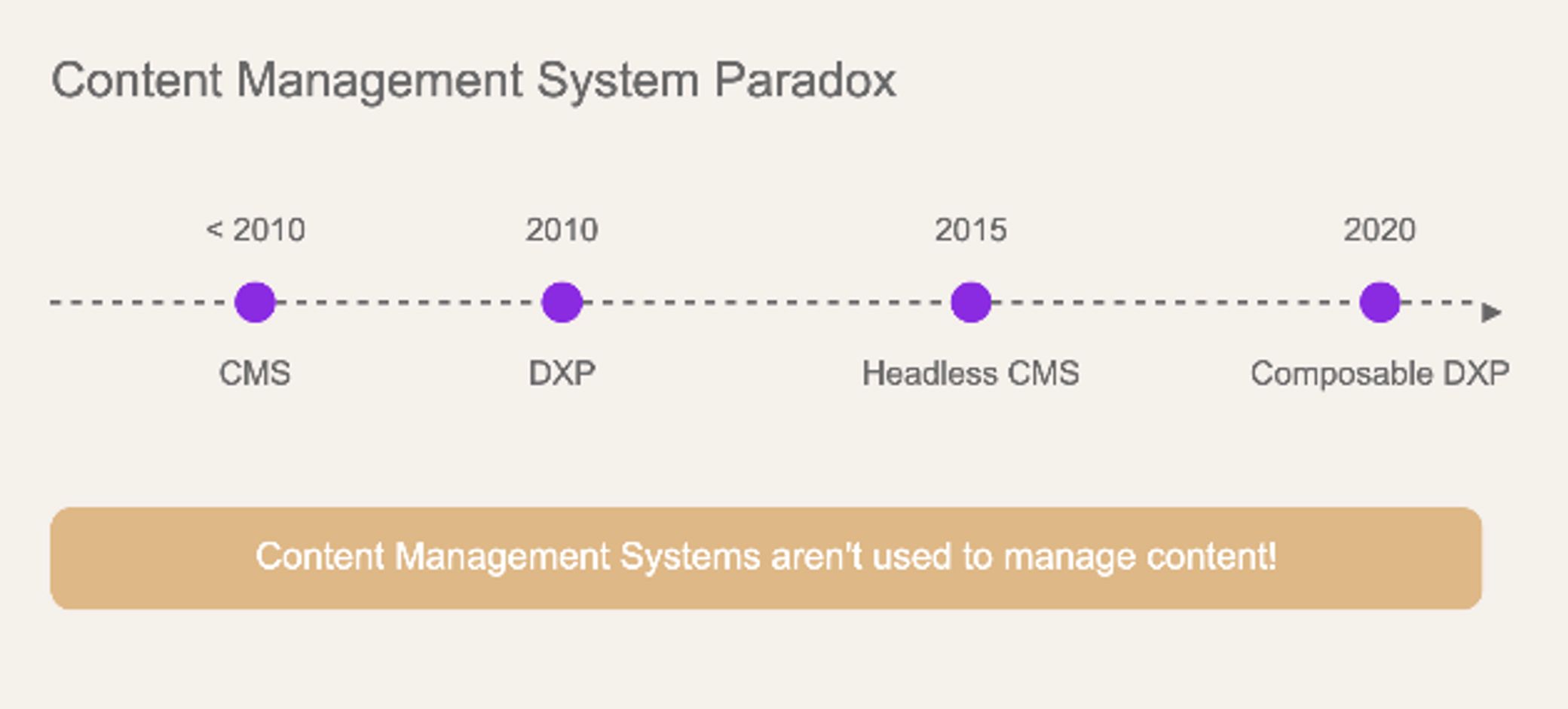
Source: Petr Palas, from his slide deck presentation at CMS Kickoff 25
Content systems are not used to manage content, and the ecosystem is “glued” together by manual processes:
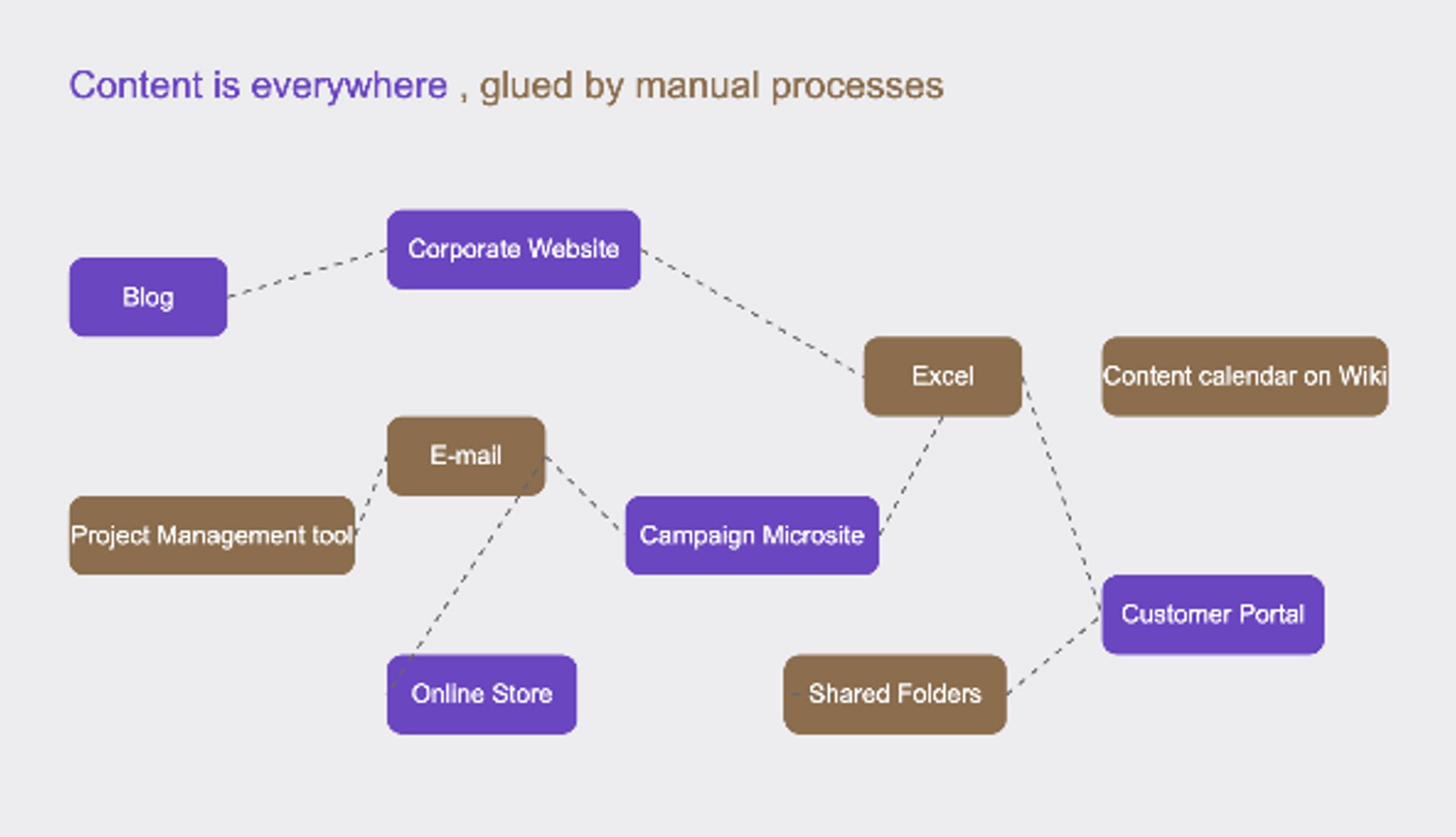
Source: Petr Palas, from his slide deck presentation at CMS Kickoff 25
Petr identified two distinct approaches to content management. Website-first customers treat content as a marketing task, typically refreshing their web presence every five years with a "build it and forget it" mentality. In contrast, content-first organizations view content as a strategic asset, employing subject matter experts and complex review processes to ensure accuracy and compliance.
This disconnect between website-first vendors and content-first customers helps explain many of the challenges organizations face when selecting and implementing content management solutions. Understanding which camp you fall into—and choosing vendors who align with your approach—can mean the difference between success and frustration.
Petr sees AI as a promising solution for scaling content management:
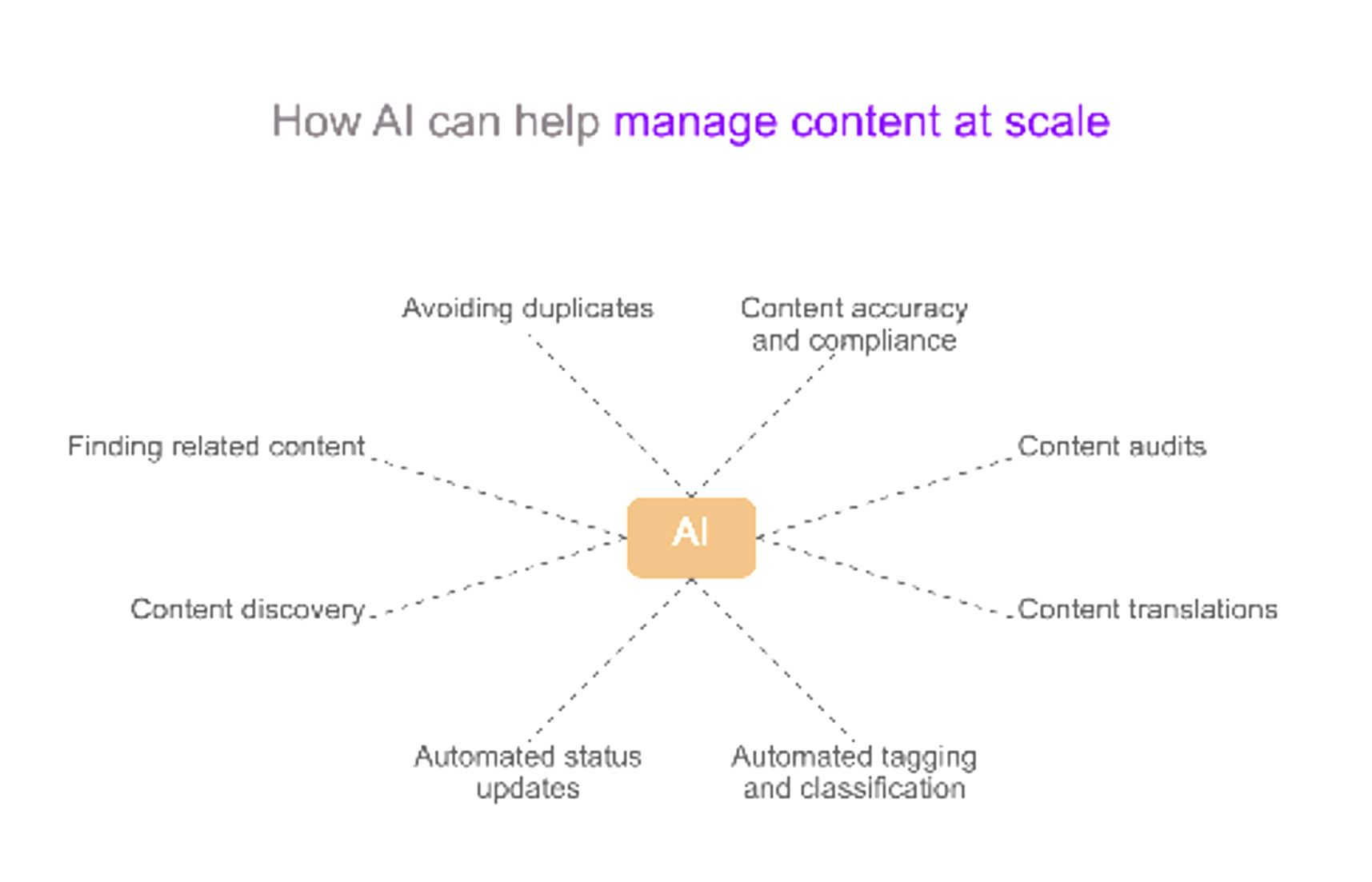
Source: Petr Palas, from his slide deck presentation at CMS Kickoff 25
AI capabilities can transform how organizations handle content—from preventing duplicates and ensuring compliance to automating tagging and translation. This evolution from manual to AI-assisted management aims to help organizations handle complex content distribution while maintaining quality and consistency.
Future-proofing content across platforms
On day two of CMS Kickoff 25, attendees were invited to participate in one of 8 small group workshops. You can find the complete set on the Kickoff website’s program page.
I chose “How do you future-proof content with many different content platforms?” which was hosted by Marc Salvatierra of ICANN.
This roundtable focused on a practical challenge: How do we ensure today's digital content remains accessible tomorrow? Using real-world examples, including a 25-year-old HTML document that needed preservation, Marc illustrated how seemingly “simple” content can become surprisingly complex to maintain over time.
The discussion moved beyond theoretical concerns when examining how modern content tools interact with legacy content. Popular editing tools can sometimes break old content structures—a particular problem for legal and regulated content that must maintain its integrity. The workshop explored various preservation methods, from basic PDF conversion to more sophisticated structured content approaches.
The key takeaway was refreshingly straightforward: Successful content preservation needs to balance practical needs with future accessibility. This means keeping essential metadata and content structure while stripping away unnecessary formatting. Marc emphasized the importance of having an emergency preservation plan—what he called a "go bag" approach—while recognizing that different types of content need different preservation strategies.
The workshop made one thing clear: Platform-independent preservation methods are crucial. As we've seen with the Archive.org disruption, depending on any single platform or technology is risky. The future of digital preservation lies in resilient, adaptable, and platform-agnostic approaches.
Closing thoughts
You know what really jumped out at me during CMS Kickoff 25? We keep running into the same challenge from different angles.
How do we know what to trust? Joel Varty got us thinking about verifying AI-generated content, and Karim Marucchi shared a fascinating story about the WordPress plugin repository. Both pointed to the same problem: We're still trying to build trust using single points of failure.
The fact is, we rely too heavily on centralized systems and individuals. Even Wikipedia, for all its collaborative spirit, is still essentially one source of truth, editable by anyone. We need to think differently about this.
Another observation I had is that we keep trying to use CMS as a "single source of truth," but let's be honest—that's not how content actually works in organizations. Nicole France nailed it when she described how content comes from everywhere: Word docs, spreadsheets, design tools, you name it. The CMS is more like a meeting point for all this content.
Looking ahead, I'm seeing a future where we completely flip our thinking about what a CMS does. Instead of being where content is created, it becomes the destination for content that lives in what we call data lakes. Now, imagine every piece of content in that lake having its own sort of digital ID card—not just saying who wrote it or when, but actually marking whether something can be translated, if it needs to be quoted exactly, whether legal has cleared it, if it's a marketing slogan, or if it's part of a contract.
And this is where AI gets really exciting. When you have all this properly tagged and verified content, AI can help create these amazing, dynamic experiences. Think of it as having a really smart DJ who can mix and match approved content in endless new ways, always knowing which pieces can go together and which can't. Your marketing pages become living things, constantly refreshing with new combinations of verified facts, approved claims, and relevant testimonials—all while staying within the guardrails of what's legal and appropriate.
The best part? Everything stays traceable and verified. It's like having a playground where you can experiment freely because you know every piece you're playing with has already been checked and approved. The AI helps manage this complex dance, but it's all based on real, verified content that we know we can trust.
I came away from the conference thinking we're at a turning point, but let's be real—this is a massive organizational challenge. We're not just talking about new technology; we're talking about fundamentally changing how organizations think about and handle their content. It means building private AI systems that are deeply immersed in your organization's data pools and that really understand your tone of voice, your industry context, and your business intent.
These AIs will need to constantly learn and adapt as your content evolves. Think about it: your organization's voice, your market positioning, your product offerings—they're all constantly shifting. Your AI needs to shift with them, maintaining that deep understanding of what makes your content uniquely yours.
The old way of thinking about content management just isn't going to cut it anymore. We need these smarter, more flexible systems that can handle content that's always changing and evolving, while still maintaining that crucial element of trust.
Yes, it's a big challenge. But after seeing what's possible, I'm actually pretty excited about where we're headed. The tools are emerging, the thinking is evolving, and organizations are starting to understand that this isn't just about managing content anymore—it's about creating intelligent, trusted content ecosystems that can grow and adapt with their businesses.
Thanks
CMS Kickoff 25 brought into sharp focus how our industry is maturing in its approach to AI—moving beyond the hype to practical, thoughtful implementation. From content governance to migration tools, from legal compliance to user experience, each session revealed new facets of how AI can enhance rather than replace human expertise.
My sincere thanks to Janus Boye and the team for curating such a valuable program, and to all the speakers and demonstrators who shared their insights and experiences. The conversations started here will undoubtedly shape many of our approaches to content management in the months ahead.
I’m looking forward to continuing these discussions at CMS Kickoff 2026 and the upcoming CMS Experts meetings throughout the year. I hope you’ll join us.
Oh, and P.S.
Considering my takeaways on AI and the future of content—and the urgent call to Trust but Verify—it’s worth noting that Apple just suspended its new artificial intelligence feature that summarizes news notifications.
Why? It was repeatedly sending fake headlines to users. You can read about it here.
Featured images courtesy of Marta Cukierman of StreamX.
Upcoming Events

CMS Summit 25
May 13-14, 2025 – Frankfurt, Germany
Don't miss the first European edition of our prestigious international conference dedicated to the global content management community! CMS Summit 25 will bring together top-notch speakers, our renowned learning format, and engaging social events. Hear from leading practitioners like Deutsche Bahn, Dr. Oetker, and more – and join customers, agencies, and CMS vendors as we discuss current trends and what's ahead for the content and digital experience fields. Connect and network at the only vendor-neutral, in-person conference focused on CMS. Space is limited for this exclusive event, so book your seats today.

CMS Connect 25
August 5-6, 2025 – Montreal, Canada
We are delighted to present the second annual summer edition of our signature global conference dedicated to the content management community! CMS Connect will be held again in beautiful Montreal, Canada, and feature a unique blend of masterclasses, insightful talks, interactive discussions, impactful learning sessions, and authentic networking opportunities. Join vendors, agencies, and customers from across our industry as we engage and collaborate around the future of content management – and hear from the top thought leaders at the only vendor-neutral, in-person conference exclusively focused on CMS. Space is limited for this event, so book your seats today.